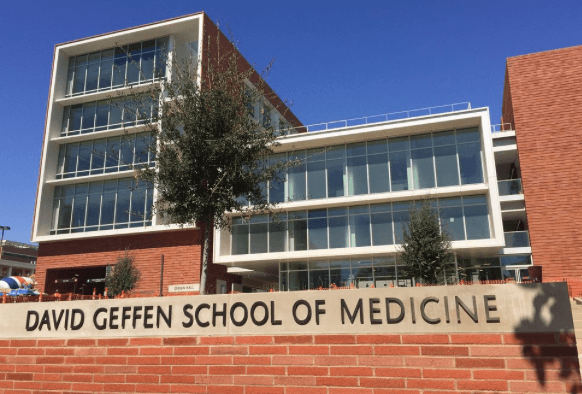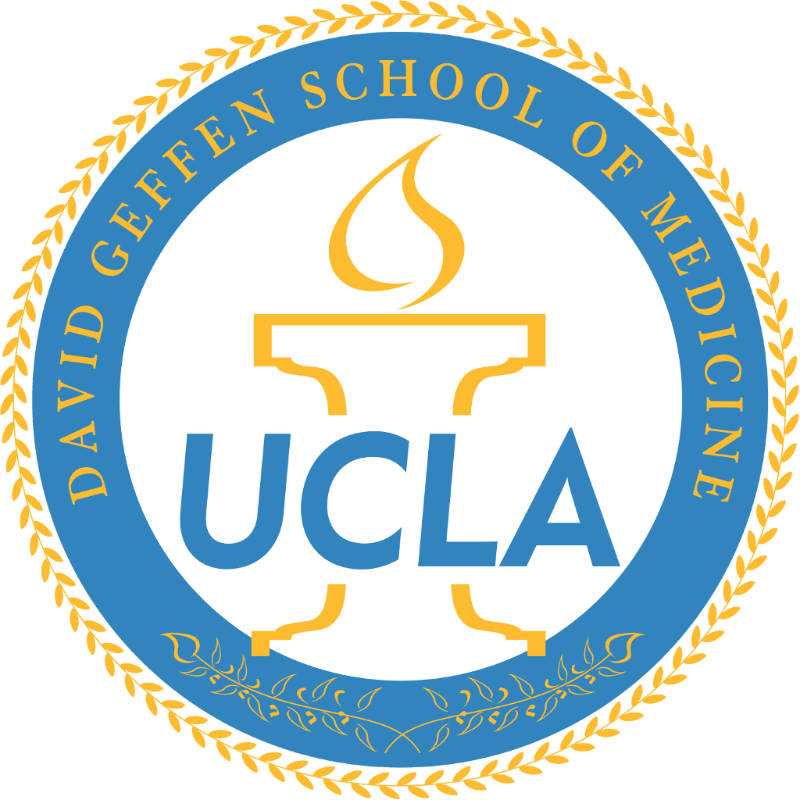

Introduction: How to Get Into UCLA Medical School
Although a relative newcomer to the medical scene, the University of California, Los Angeles School of Medicine, also known as David Geffen School of Medicine at UCLA, is one of the most prestigious medical schools in the United States. Founded in 1951, UCLA is currently ranked #19 in U.S. News and World Report for research. Given its highly acclaimed reputation, it’s no surprise that admission is fiercely competitive.
“As the youngest top medical school in the nation, we are a groundbreaking community of problem solvers, caregivers, innovators and life-long learners with a noble mission: to heal humankind by delivering leading-edge research, education, patient care and community engagement.”
UCLA Medical School Programs
There are four major programs within UCLA Medical School. They include:
Traditional MD Program
The medical education program at the David Geffen School of Medicine equips students with the knowledge and skills to provide the best care for their patients and contribute to the ever-growing scientific body of knowledge. Through research, clinical practice, teaching, and public service, students learn how to employ a patient-centered approach to their careers in medicine. Currently, the classic MD program is going through a curriculum redesign.
UCLA-Caltech Medical Scientist Training Program
In partnership with the California Institute of Technology (Caltech), this combined MD-PhD program focuses on training physician-scientists, exploring topics including engineering, social sciences, bedside research, and health policy. The program seeks out students with a “life-long commitment” to research and leadership. Students complete the medical portion of their education at the David Geffen School of Medicine and their PhD within a UCLA graduate program. Annually, two students will complete their graduate training at Caltech.
Charles R. Drew/UCLA Medical Education Program
Through this program, students receive training to become leaders in medicine in underserved populations within the U.S. and abroad. Twenty-four students are selected for this community-based program in medical education, which emphasizes the humane aspects of medicine and diversity.
PRIME-LA
PRIME-LA students focus on addressing real problems in healthcare through leadership and advocacy, emphasizing healthcare disparities in disadvantaged and underserved populations in California and the entire country. Participants complete the traditional MD curriculum, along with special courses. They will also undertake research projects relating to healthcare access problems and clerkships in clinical arenas that focus on these populations, before completing an advanced degree, such as an MBA, MPH, MPP, or MS.
How Difficult is it to get into UCLA Medical School?
UCLA Medical School Acceptance Rate
Admission to the UCLA Medical School is extremely competitive, with an acceptance rate of 2.3 percent. Of the 14,357 applicants in 2022, 1093 were invited to interview and 320 students were accepted. More than half of admitted students — 175 — ended up enrolling.
A majority of students were in-state, while 40 percent were out of state and 2.2 percent were international. 55 percent of the student body were women.
UCLA Medical School Average MCAT
Accepted students at the UCLA School of Medicine had an average MCAT score of 516. A 510 represented the 25th percentile, while 520 was at the 75th percentile of students.
UCLA Medical School Average GPA
For accepted students, the 25th percentile of admitted students had a GPA of 3.62, while students with a 3.92 sit at the 75th percentile. The average GPA is 3.81.
UCLA Medical School Undergraduate Majors
Among students who ended up matriculating at the UCLA School of Medicine, 79 percent majored in a science discipline.
UCLA Medical School Application Deadlines
The David Geffen School of Medicine uses the American Medical College Application Service (AMCAS), which has a primary application deadline of September 30th.
UCLA Secondary Essay Information and Prompts
Unlike most medical schools, UCLA screens applicants and only selected applicants are extended a secondary application. The secondary application is due FIFTEEN days from the invitation to complete it.
UCLA Secondary Essay Prompt #1
At the David Geffen School of Medicine at UCLA, students are provided with curriculum and experiences enabling them to become an “Outstanding Physician, AND…,” dedicating themselves to important societal missions. What missions do you want to embrace? What have you done toward your missions? (800 characters)
It’s important to be completely genuine in your response here, because otherwise, the admissions committee will see through it. It can be helpful to use an anecdote from your most meaningful volunteering, advocacy, or social justice experience to show, rather than tell, how it affected you. The vast majority of students will write about an activity that has been discussed elsewhere in the primary application.
UCLA Secondary Essay Prompt #2
Respond to the following and indicate how these areas of experience have impacted your progress toward your future career goals in relation to becoming an “Outstanding Physician, AND…”.
A-Describe your most unique leadership, entrepreneurial, or creative activity. (800 characters)
The key here is to remember that you’re being tasked with describing an activity that’s not related to your coursework or academic life. That means you should explain your passion for r an outside club or extracurricular you enjoy. You can, of course, connect it to your reasons for wanting to be a physician — perhaps, for example, tutoring younger students helped cultivate your desire to help people.
B-Describe your most important volunteer work and why it was meaningful. (800 characters)
It’s important to be completely genuine in your response here, because otherwise, the admissions committee will see through it. It can be helpful to use an anecdote from your most meaningful volunteering experience to show, rather than tell, how it affected you. The vast majority of students will write about an activity that has been discussed elsewhere in the primary application.
C-Describe your most scholarly project (thesis, research or field of study in basic or clinical science or in the humanities) and provide the total number of hours, dates and advisor. (800 characters)
You may choose to write about something off-the-beaten path for this prompt or something more “traditional” such as a research project; you can stand out by writing about either. If you’ve undertaken an interesting project that the admissions committee doesn’t encounter too often, they will notice, say, an interesting humanities or social science project that has some connection to medicine. Try not to focus too heavily on the details and information but instead your takeaways from it. This is another prompt that will force you to write about topics covered in your primary.
UCLA Secondary Essay Prompt #3
Describe how the COVID-19 pandemic has impacted your pathway to medical school. Include any academic, personal, financial or professional barriers, as well as other relevant information. (800 characters)
UCLA Secondary Essay Prompt #4
Did you experience or are you anticipating time between graduating from college and matriculating into medical school?
If yes: Describe the activities in which you participated or are planning to participate. Examples include additional schooling, employment, or caring for a loved one. (800 characters)
Many students take gap time before applying to medical school, and that’s okay. Just be forthcoming and explain why you took the time off and how you benefited from it. Perhaps you traveled and gained a new perspective or wanted to have work experience to help you become more mature, for instance. Again, this prompt may force you to repeat topics covered in your primary application.
UCLA Secondary Essay Prompt #5
Do you identify as being part of a group that has been marginalized (examples include, but are not limited to, LGBTQIA, disabilities, federally recognized tribe) in terms of access to education or healthcare?
If yes: Describe how this inequity has impacted you or your community and how educational disparity, health disparity and/or marginalization has impacted you and your community. (800 characters)
This will give the admissions committee insight into any difficulties you may have faced that could impact your academic performance and overall candidacy. Because UCLA seeks students from different backgrounds and perspectives and understands that you may have undergone obstacles that affected your performance in college and beyond, this will most likely help rather than hurt your chances of acceptance. That said, you should never fabricate an obstacle to improve your odds of admission. Do not feel you must complete this essay if you don’t have anything you feel qualifies as a marginalization or hardship.
UCLA Medical School Interview Format
The UCLA admissions committee screens applications and extends invitations starting August 15th.
Interviews are conducted virtually and are a one on one traditional format except for the PRIME program which conducts MMI interviews.
UCLA has rolling admissions and will no longer conduct interviews once the class is filled, so you should submit your completed application as soon as possible.
Special programs often have additional requirements and deadlines.
Related Article: Medical Schools in California
UCLA Medical School Requirements
Coursework
Like many medical schools, UCLA has moved toward competency-based admissions, rather than using strict requirements students must meet in order to be considered as candidates. The only strict requirement is that the applicant must have obtained a bachelor’s degree and completed a minimum of three years of undergraduate coursework at a U.S. or Canadian institution (AP credit is accepted).
However, in order to meet the competencies, which include intellectual engagement, enthusiasm for lifelong learning, and maturity, UCLA offers suggestions for coursework students might complete:
- Cellular and Molecular Biology
- Genetics
- Inorganic and Organic Chemistry
- Biochemistry of Intermediary Metabolism
- Lab activities as they relate to the above coursework
- Humanities, such as literature, art, philosophy, history, religion, economics, ethics, economics, social behavior, and/or psychology
- Mathematics and Statistics, such as biomathematics, matrix algebra, and/or computer science
UCLA also seeks students with writing, communication, and interpersonal skills and clinical experience, along with an awareness of healthcare delivery practices, human diversity, and research experience.
UCLA Medical School Tuition
UCLA medical school tuition varies according to whether you’re in- or out-of-state. In-state students pay $40,585 per year (tuition and fees), while out-of-state students pay $52,830 per each of four years. Additionally, both in- and out-of-staters pay $4,012 for Year 3 summer.
Nearly all students receive some type of financial aid — 92%. There are several scholarships available, including:
- David Geffen Medical Scholarships, which cover 100% of their education
- Our Leaders of Tomorrow Scholars Program, which covers full tuition plus a research stipend
- The LA Care Scholarship, which covers the full cost of education
On average, students graduate with approximately $149,112 of debt.
UCLA Residency Matches
UCLA School of Medicine graduates match in many different specialties. The top five matches include:
- Internal Medicine: 16%
- Pediatrics: 12%
- Anesthesiology: 8.1%
- Family Medicine: 9%
- Emergency Medicine: 6%
- OB/GYN: 6%
No matter what your specialty of choice, UCLA will give you the foundation for a promising future and a stellar reputation.
About MedEdits
MedEdits helps students get admitted to medical school and residency programs. Our consultants have years of experience serving on medical school admissions committees, and as faculty members at the top medical schools in the country.
Need Help With Medical School Admissions Process?
Schedule a Free 15 Minute Consultation with a MedEdits expert.


